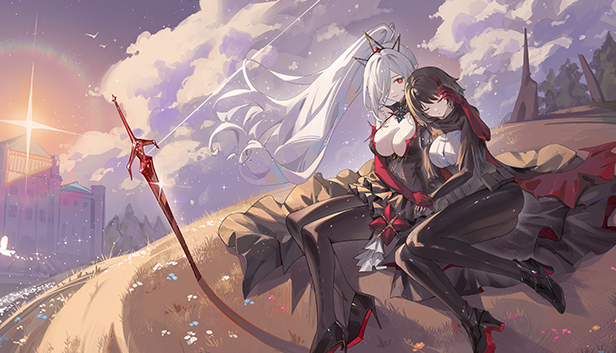
Introduction
American literature has always been a reflection of the country’s identity, society, and culture. Throughout its history, American writers have explored various themes and concepts related to freedom – a fundamental value that defines the nation itself. From the early works of Ralph Waldo Emerson and Henry David Thoreau to contemporary voices like Toni Morrison and Chimamanda Ngozi Adichie, American literature offers an insightful analysis of what it means to be free in today’s world. In this blog post, we’ll explore some of the boundaries of freedom within contemporary American literature – examining different perspectives on liberty as well as key themes that recur across many works. So get ready to dive into an exciting journey through some of America’s most thought-provoking books!
Themes of Freedom in American Literature
American literature has always been a reflection of the country’s social, political, and cultural values. One of the most prominent themes explored in American literature is freedom. The concept of freedom is deeply ingrained in American society, and this theme often serves as a way for writers to explore issues related to race, gender, class, and individualism.
One of the earliest examples of the theme of freedom in American literature can be found in Ralph Waldo Emerson’s essay “Self-Reliance.” In this essay, Emerson argues that individuals should trust their own instincts and ideas rather than conforming to societal norms. He emphasizes the importance of individualism and self-expression as essential aspects of personal freedom.
Another notable work exploring themes related to freedom is Harriet Beecher Stowe’s novel Uncle Tom’s Cabin. This novel addresses issues such as slavery and racial inequality through characters who struggle for their right to liberty. Stowe uses her characters’ experiences to highlight how institutionalized oppression can limit an individual’s ability to exercise his or her natural rights.
The Great Gatsby by F. Scott Fitzgerald also explores themes related to economic freedom versus moral responsibility. The character Jay Gatsby embodies the idea that financial success equates with personal happiness; however, his quest for wealth ultimately leads him astray from his true desires.
Exploring themes related to freedom has been a recurring motif throughout American literature since its inception. It allows readers not only insight into historical contexts but also provides inspiration for contemporary debates around civil liberties within society today.
Concepts of Liberty in American Literature
The concept of liberty in American literature is a complex and multifaceted one. From the founding principles of the country to contemporary works, freedom has been a central theme in American letters.
In early colonial literature, writers such as William Bradford and John Winthrop emphasized religious freedom as a cornerstone of their new society. This idea would later be enshrined in the First Amendment to the Constitution.
The Transcendentalist movement of the 19th century also explored concepts of individual liberty and self-reliance through works like Ralph Waldo Emerson’s “Self-Reliance.” Meanwhile, African-American authors such as Frederick Douglass used their writing to challenge slavery and advocate for civil liberties.
Throughout contemporary American literature, we see authors grappling with issues related to personal freedoms versus societal responsibilities. Writers like Toni Morrison explore themes of racial injustice and oppression, while Kurt Vonnegut’s work highlights government intrusion into personal lives.
Concepts of liberty have evolved over time in American literature but remain an enduring subject matter that continues to captivate readers today.
Perspectives on Freedom in American Literature
Perspectives on freedom in American literature vary greatly depending on the time period and social context. Early American writers, such as Ralph Waldo Emerson and Henry David Thoreau, emphasized individualism and self-reliance as a means of achieving personal freedom.
In contrast, contemporary authors like Toni Morrison and Ta-Nehisi Coates explore themes of collective liberation for marginalized communities through their works. These writers focus on how systemic oppression limits individuals’ freedoms based on race, class, gender identity, or sexual orientation.
Furthermore, some authors have examined the relationship between political freedom and artistic expression. For example, Allen Ginsberg’s Howl famously challenged censorship laws that restricted free speech during the McCarthy era.
Perspectives on freedom in American literature continue to evolve alongside societal changes. As new issues arise in today’s world – such as surveillance capitalism or environmental degradation – they are likely to be reflected in future literary works exploring the boundaries of human liberty.
Conclusion
The exploration of freedom in American literature is a complex and multi-faceted topic that has been analyzed by scholars for decades. As we have seen, there are numerous themes, concepts, and perspectives on what it means to be free in America.
From the early works of Hawthorne and Melville to contemporary authors like Toni Morrison and Junot Diaz, American literature has captivated readers with its portrayals of the struggle for liberation. The idea of freedom as both an individual right and a collective responsibility continues to resonate with readers today.
As we continue to grapple with issues surrounding social justice and equality in our society, it is important to look back at these literary works as guides for navigating our present circumstances. With their depictions of triumphs over oppression, they offer hope for a brighter future where all individuals can experience true liberty.
So let us continue exploring the boundaries of freedom through American literature – not only as an academic pursuit but also as a means towards understanding ourselves better as human beings.










